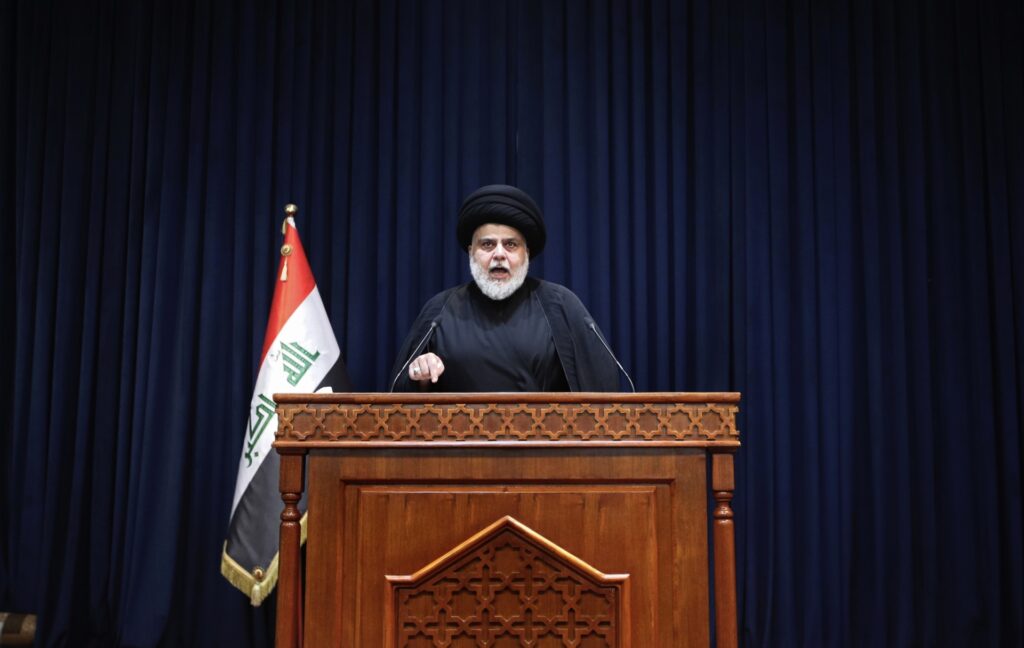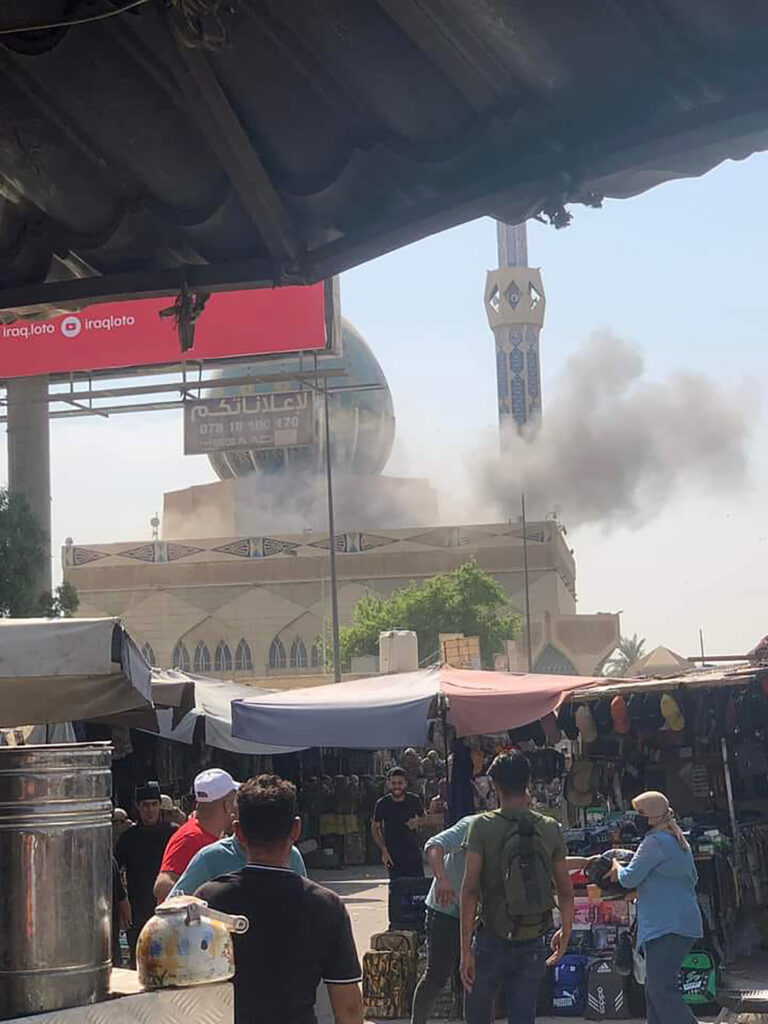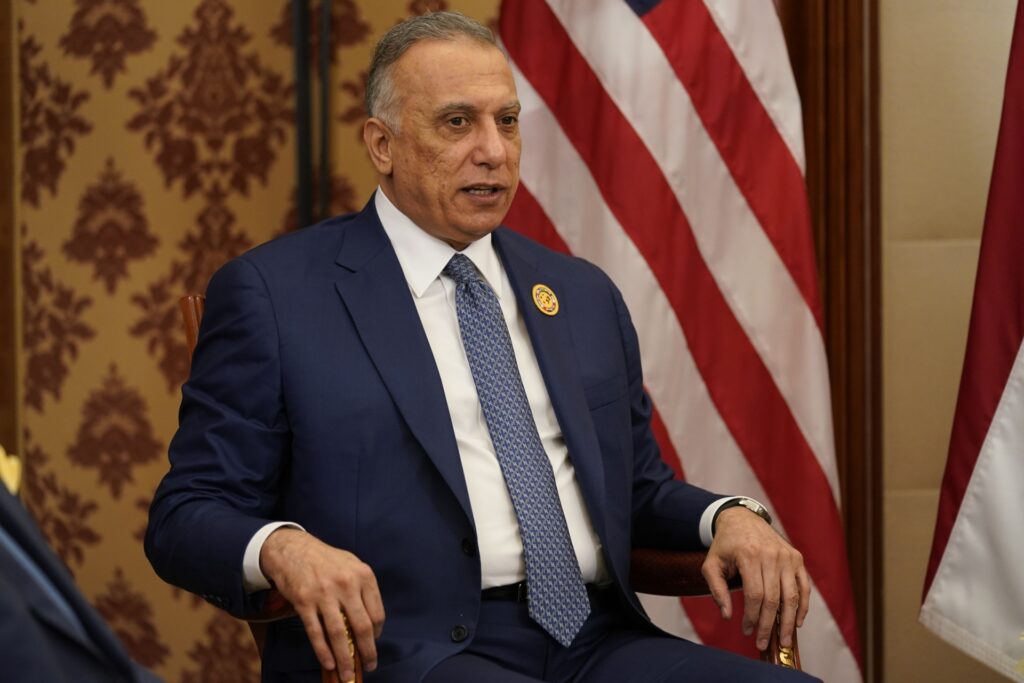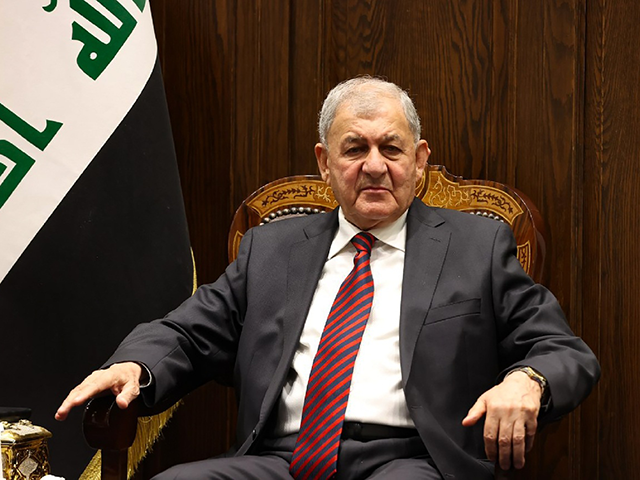Iraq’s year-long political stalemate ended with a literal bang on Thursday, as Parliament elected former water resources minister Abdul Latif Rashid as president just hours after a barrage of rockets hit Baghdad’s secure Green Zone, where central government offices are located.
Rashid, 78, will become the fourth president of post-Saddam Iraq. As the Iraqi power-sharing system informally but rather firmly dictates, he is of Kurdish extraction. Parliament must now nominate a Shiite Muslim for prime minister, while the parliamentary speaker must be a Sunni Muslim.
Rashid on Thursday nominated Mohammed Shia al-Sudani for prime minister. Sudani, a former human rights minister, is supported by the Coordination Framework, a coalition of parties aligned with the Shiite theocracy in Iran. He will be given 30 days to form a cabinet and obtain parliamentary approval.
The Iraqi government has been paralyzed since the federal elections of October 2021, whose biggest factional winner was the Iraqi Shiite nationalist cleric Moqtada al-Sadr. Sadr is hostile to Iran and the Iraqi Shiite politicians it supports. He is also a loud and erratic critic of corruption in the Iraqi system.
Sadr spent months unsuccessfully attempting to form a government, then gave up in August and ordered all 73 of his legislators to resign from Parliament. His supporters grew increasingly violent, staging massive street demonstrations, occupying the Green Zone for months, and occasionally storming government buildings.

Shiite cleric Muqtada al-Sadr makes a speech from his house in Najaf, Iraq, Tuesday, Aug. 30, 2022. (AP Photo/Anmar Khalil)
Sadr alternately pulled his devoted followers back from the brink of civil war and made threatening demands for the dissolution of the Iraqi government. In late August, he unleashed a riot by announcing his “final withdrawal” from politics, possibly to focus on winning a factional battle with other Iraqi Shiite leaders.

This photo provided by Security Media Cell, shows smoke rising after a rocket attack in Baghdad, Iraq, Thursday, Oct.13, 2022. (Security Media Cell via AP)
Four attempts to elect a president and form a government failed over the past year, leaving the administration in the hands of caretaker Prime Minister Mustafa al-Kadhimi. The new candidate for prime minister, Sudani, was put forward as a potential nominee in July, but his candidacy was scuttled by street protests from Sadr’s followers.

Iraqi Prime Minister Mustafa Al-Kadhimi talks during a meeting with President Joe Biden, Saturday, July 16, 2022, in Jeddah, Saudi Arabia. (AP Photo/Evan Vucci)
As for President Rashid, he too emerged from a factional struggle, enjoying the support of the Kurdistan Democratic Party (KDP) while its rival the Patriotic Union of Kurdistan (PUK) wanted incumbent President Barham Salih to remain in the post. Rashid did not prevail over Salih until the second round of parliamentary voting.
Rashid and his wife are actually members of the PUK, although he ran as an independent. As an Iraqi official told AFP on Thursday, he “has a good standing with both Shiite and Sunni politicians” and is even “respected” by the Sadrists, so any political wounds caused by his close contest against Salih might not take long to heal.
“I think that what happened today is a fatal blow to Moqtada al-Sadr politically. With the victory of the Coordination Framework over Moqtada al-Sadr, the road is completely paved for them to pass their candidate and form the government,” Baghdad political analyst Mohammed Jassim told the Washington Post on Thursday.
Although the Biden administration congratulated Iraq for breaking its political deadlock, urging “all parties to refrain from violence and resolve differences amicably.” Jassim said there was little for the United States to cheer in Rashid’s victory.
“The Iranian-backed Coordination Framework will do everything in their power to eliminate any U.S. presence in the country and place obstacles to any economic cooperation with the U.S., all in favor of Iran,” he predicted.
Washington Institute analyst Hamdi Malik told the UK Guardian the Coalition Framework will “gradually or suddenly and try marginalized or expel pro-Sadrists from the state apparatuses,” which could be a recipe for further political violence.
A few hours before the presidential vote, the latest in a series of rocket attacks hit the Green Zone, injuring up to ten people according to various accounts from Iraqi security officials. Both civilians and military personnel were among those injured by the shower of nine Russian-made Katyusha rockets, reportedly including bodyguards employed by Parliament.
There was no immediate claim of responsibility for the attack, although Al Jazeera News suspiciously noted Moqtada al-Sadr’s followers did not attend the parliamentary session that elected Rashid president.

COMMENTS
Please let us know if you're having issues with commenting.